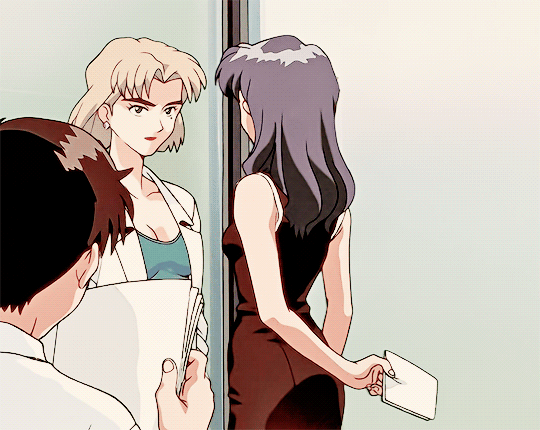Revolutionary Girl Utena
The man, the myth, the legend. I think Utena is the best piece of feminist fiction in the modern age, dealing with surveillance and Reality and families and the subconscious and stagnation and performance and the self and how our ideas of gender love and society are formed by fundamental childhood memories which are then distorted into creation myths as we struggle to make sense of a world which is, in the end, meaningless, terrifying, and free. The characters are an impecable mix of endearing, relatable, and fictional-- they are both "Saionji" and the archetypical man/societal function which Saionji represents. The show is a story, and it's a surrealist feminist commentary, and I think it does both well. I mean, Utena is genius. I'm fundamentally skeptical of the (consumerist, commodity fetishist) instinct to define oneself by what we consume, but if I were to define myself by anything it would be Revolutionary Girl Utena-- I'm not a Marxist or a Post-Structuralist or anything like that, I'm an Ikuharian... haha.
But, I digress. You're looking for something to watch. Watch Utena. It's a good show, it's beautiful, it's painful. The basics of the story
Riyoko Ikeda had done it again... and done it transcendentally. Originally released in 1974, Oniisama E was the precursor to, really, all of modern shoujo. The work of The Year 24 group, an informal grouping of influential female shoujo artists in the 1970s which Ikeda belonged to, is marked by several common themes: grand, border-bleeding panels, the beginnings of yuri/lesbian themes, and strange psychological obsessions and despairs. In Oniisama E, Ikeda epitomized all three. Oniisama E is both a 39 episode anime and a three volume manga, and, although the manga has never been officially translated into english, like all of Ikeda's works I would absolutely reccomend going out of your way to find it online and read it. Oniisama E's primarly plot concerns Nanako, a young girl just starting high school, the former teacher she refers to as "brother," and her experience joining the school's elite Sorority. While the primary plot is engaging and has its own share of psychological melodramas (mostly concerning Mariko, a familiar sort of panicked and violent young lesbian), the true stars of the narrative are the "Magnificent Three:" the star basketball player, the Romantic and drug-abusing pianist, and the woman heading the Sorority which Nanako goes through so much trouble to join. The beautiful thing about Kaoru and Rei is that they have everything that people love from pretty boy slash shipping in a pair of horrifically dysfunctional butch lesbians. They're dolls. They're fated to die in each other's arms. Every girl in high school is drawing them kissing in her notebook margins (see this clip)-- and, duh, they're communists. Oniisama E is a story which greatly benefits from its reveals, so there's not much to say about the third member of the Magnificent Three, but between her and Rei they could fill a psychiatrists notebook. Oniisama E, like many of its contemoraries, isn't concerned with telling the right lesbian story, or even necessarily a lesbian story at all. Instead, it taps into a very specific midcentury experience of young womanhood in Japan and the homosocial and homoerotic behavior, psychological dramas, and intense confusions that entails. The girls in Oniisama E are not pretty, they are not medicated (at least, not with anything prescription), and they have enough razor blades on them to break a metal detector. GOOD IF YOU LIKE: Psychological dramas, butch4butch, knives and drugs and terminal illness, mean girls BAD IF YOU LIKE: To say "this character needs therapy" because no they don't, then they wouldn't be interesting Before I get too far into this, I want to start with a quote from Araki himself: "It doesn't matter if a character is female or not. Some artists think that adding a woman might create an element of charm, and therefore gain more popularity, but I'm not so sure I agree. I think that even if you're creating a manga that includes love and romance, you could have it be between two male characters, as long as that fits with your manga's world. As long as your characters are appealing, you could get away with a world of all men. You have nothing to fear." So, I'm not going to try to tell you that JJBA part 6 is some incredible, gynophile feminist piece of art. But I do think one part of that quote stands out to me: It doesn't matter if a character is female or not. This is an ethos which, whatever it's misogynistic base, comes through in Stone Ocean and makes it worth watching and reading. Jolyne, Ermes (and maybe Foo Fighters) are some of the most competently, intensely written female characters I've found in manga-- maybe even in mass media as a whole. Araki writes them like he does men. You know the Jojo's drill: stands, dramatic fight scenes, constant strange-feeling homoeroticism. Jolyne is incarcerated in a women's prison, where her deadbeat father, Jotaro, comes to visit her one last time, telling her that she was framed for her crime (vehicular manslaugher) and that someone inside the prison plans to kill her. While visiting, Jotaro is put into a stand-related coma by someone inside the prison, and Jolyne is tasked with tracking down his attacker in order to save him. Jolyne is the final Jojo in the main timeline, and (although overlooked by fans for obvious reasons and a bungled Netflix debut) a fitting finish. The anime is incredibly faithful to the manga, in many cases reproducing it frame for frame, so which to consume is totally individual preference. GOOD IF YOU LIKE: JJBA (duh), bright colors, Shawshank Redemption, Araki-style objectification of women and men
BAD IF YOU LIKE: kawaii type yuri dolls The manga follows the fictional Lord Oscar de Jarjayes and Marie Antoinette throughout the final days before the French Revolution. As Marie Antoinette's life begins to fall apart, Oscar discovers the plight of the French poor and begins to question the class system which she's benefitted from her entire life. Alongside the political themes of the novel, which stem from Ikuhara's time in the Japanese Communist Party and New Left, there are conspicious subversions of the common "princess and gentleman prince" narratives, with Oscar's first love GOOD IF YOU LIKE: Historical fiction, masc women, gay men
BAD IF YOU LIKE: I don't know, historically relevant liturature? (haha)
ONIISAMA E (BROTHER DEAR BROTHER)


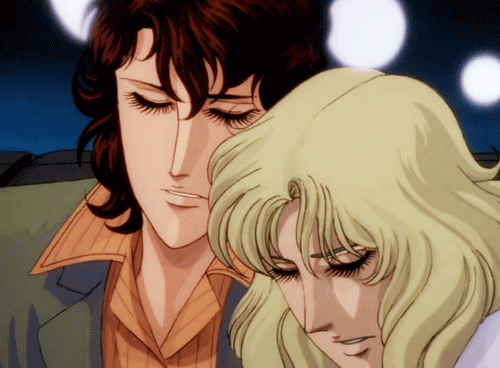

JJBA Part 5/6: Stone Ocean




Rose of Versailles
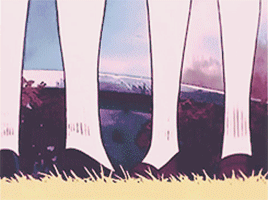 Another, more iconic Riyoko Ikeda piece. Rose of Versailles has figurines, it has Japanese subway trains, it has a movie and stage play and an award from France for furthering French-Japanese cultural relations. As of 2020, it also has a hardcover English release, which I somehow acquired in toto.
Another, more iconic Riyoko Ikeda piece. Rose of Versailles has figurines, it has Japanese subway trains, it has a movie and stage play and an award from France for furthering French-Japanese cultural relations. As of 2020, it also has a hardcover English release, which I somehow acquired in toto.
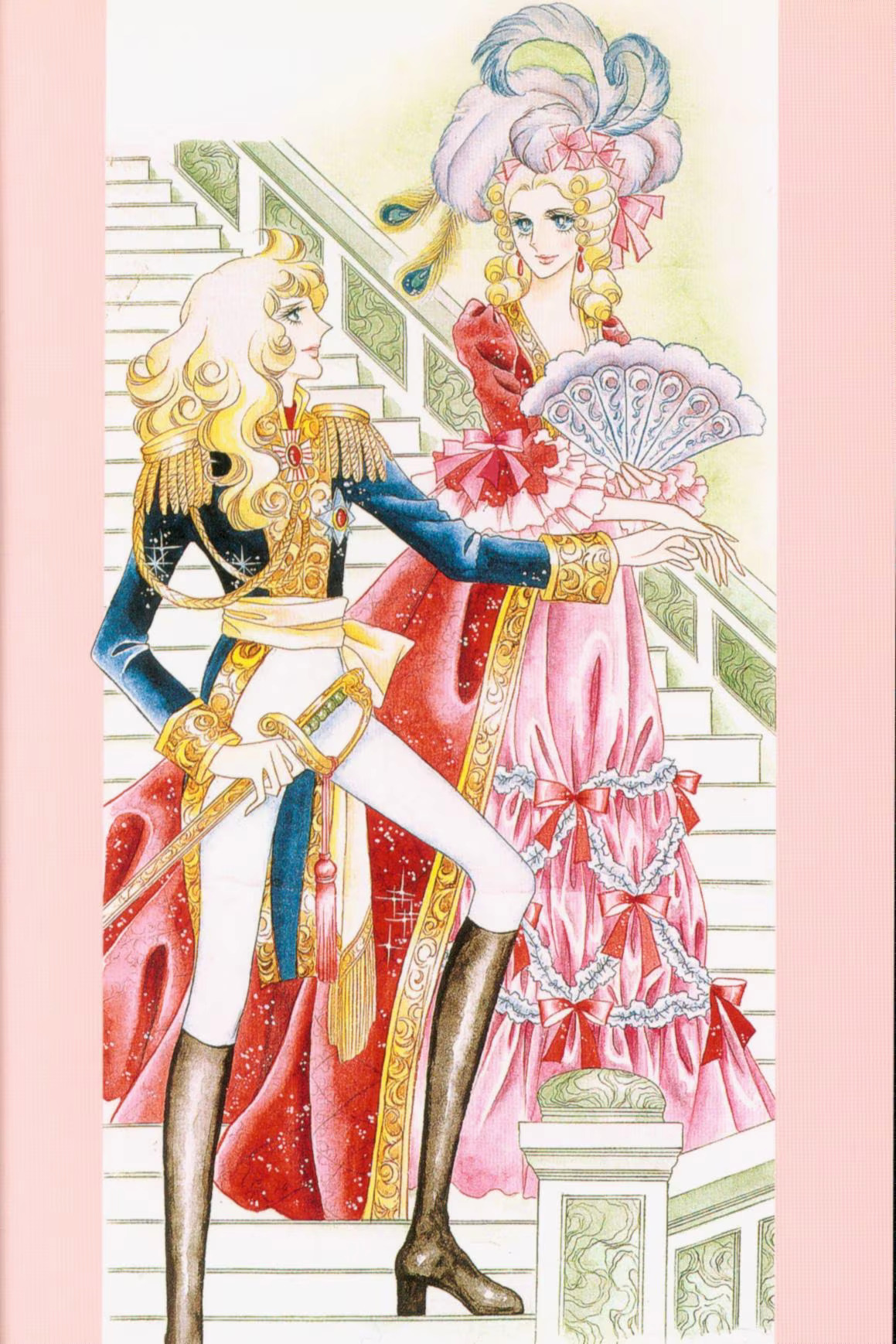 interest, Rosalie, fitting this dynamic yet being a woman, and her next two being "gentleman princes" but unable to reconcile that identity with Oscar's as a similarly masculine figure. In the end, Oscar's true love interest is a man, their relationship dyanmics alluding to the soon-to-emerge yaoi genre. The anime more or less follows the same narrative, although since the anime had an English release much earlier than the manga, it centers around "Lady", rather than Lord, Oscar.
interest, Rosalie, fitting this dynamic yet being a woman, and her next two being "gentleman princes" but unable to reconcile that identity with Oscar's as a similarly masculine figure. In the end, Oscar's true love interest is a man, their relationship dyanmics alluding to the soon-to-emerge yaoi genre. The anime more or less follows the same narrative, although since the anime had an English release much earlier than the manga, it centers around "Lady", rather than Lord, Oscar.
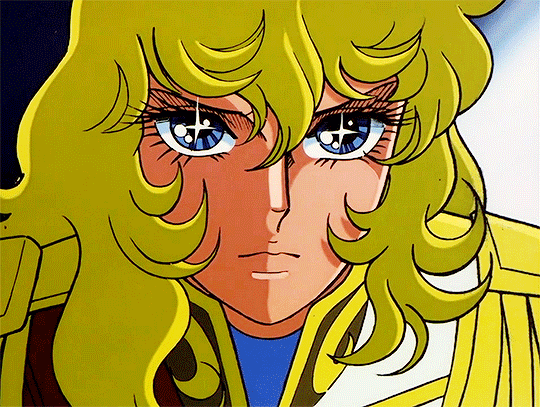 Rose of Versailles also seems like a no-brainer direct inspiration for Revolutionary Girl Utena, and it's often clear that the artists (Chiho Saito has professed to inspiration) looked to ROV, but Ikuhara says he took no inspiration (ctrl+f for "characterized" and it'll bring you to the paragraph). It's possible that things that we, as modern western audiences, associate the roses, grand gestures, and girl "prince" as things which are inherently ROV, while to someone like Ikuhara who grew up more emersed in shoujo as a whole and went on to make an intentional subversion, those are indicative of the genre of a whole, like if an alien saw one human in 1972 and then another in 1995, noticed they both had ears, mouth, and a nose and said "ah, this second human must be inspired by the first--" but that's just conjecture. There's no question that Rose of Versailles, as the most influential Year 24 Club manga, was instrumental in what Utena was able to create, whether that connection is direct or not.
Rose of Versailles also seems like a no-brainer direct inspiration for Revolutionary Girl Utena, and it's often clear that the artists (Chiho Saito has professed to inspiration) looked to ROV, but Ikuhara says he took no inspiration (ctrl+f for "characterized" and it'll bring you to the paragraph). It's possible that things that we, as modern western audiences, associate the roses, grand gestures, and girl "prince" as things which are inherently ROV, while to someone like Ikuhara who grew up more emersed in shoujo as a whole and went on to make an intentional subversion, those are indicative of the genre of a whole, like if an alien saw one human in 1972 and then another in 1995, noticed they both had ears, mouth, and a nose and said "ah, this second human must be inspired by the first--" but that's just conjecture. There's no question that Rose of Versailles, as the most influential Year 24 Club manga, was instrumental in what Utena was able to create, whether that connection is direct or not.




